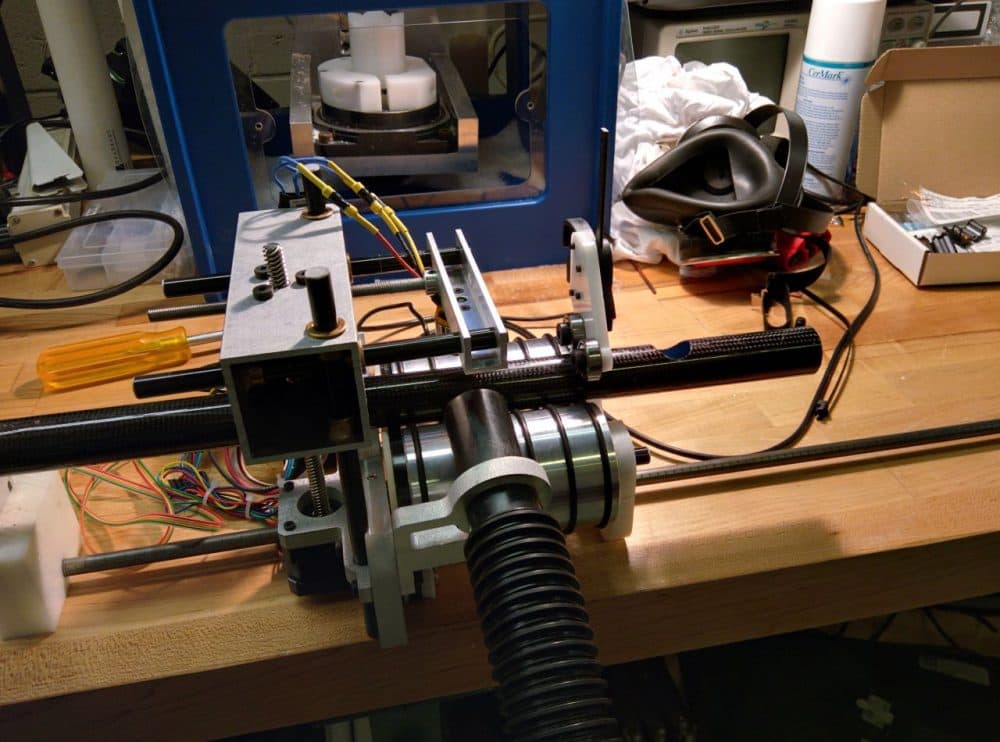Advertisement
Boston's The Birthplace Of Fab Labs, Tech Spaces To Build Almost Anything
Resume
This week at MIT, digital innovators and inventors from around the world are taking part in the international "Fab Lab" conference.
Fab Labs provide widespread access to digital invention and production — and have spread from inner-city Boston to rural India and Norway.
Here's the idea: Let's say you want a new chair for your kitchen table. You could buy one at Ikea or Target, or order it online through Amazon.
That's the conventional route. But in the world of Fab Labs, you can build it yourself — using computers, 3-D printers, milling devices, laser cutters and digital assemblers. Put simply: In a Fab Lab you can turn data into things, and things into data.
"This is very precisely a third industrial revolution," says Neil Gershenfeld, head of MIT's Center for Bits and Atoms. He's the inspiration behind Fab Labs, which he explains this way: After the Industrial Revolution, the first digital revolution brought us computing; the second democratized communication. Gershenfeld says Fab Labs are sparking a third digital revolution, which will empower regular people everywhere to use data to build smart things.
Guest
Neil Gershenfeld, professor and director of the Center for Bits and Atoms at the Massachusetts Institute of Technology.
More
Fab11: Fab Fest Boston: Making Impact
- "Fab labs are publicly-accessible workshops with digital fabrication tools like 3D printers and laser cutters that allow you to 'make almost anything.' The weekend Fab Fest will connect these local and international innovators, providing hands-on educational and entertaining experiences for everyone. Fab Fest Boston will be held on August 8th at the Reggie Lewis Center in Roxbury Crossing Boston."
Here & Now: The Third Digital Revolution: Making Things
- "There are a few hundred of these fab labs now, including above the arctic circle in Norway, in rural India and in African villages. In the lab in Norway, locals created their own antennas and radios so farmers — who are no longer allowed to be nomadic herders due to land ownership issues — could locate their sheep and reindeer in the mountains."